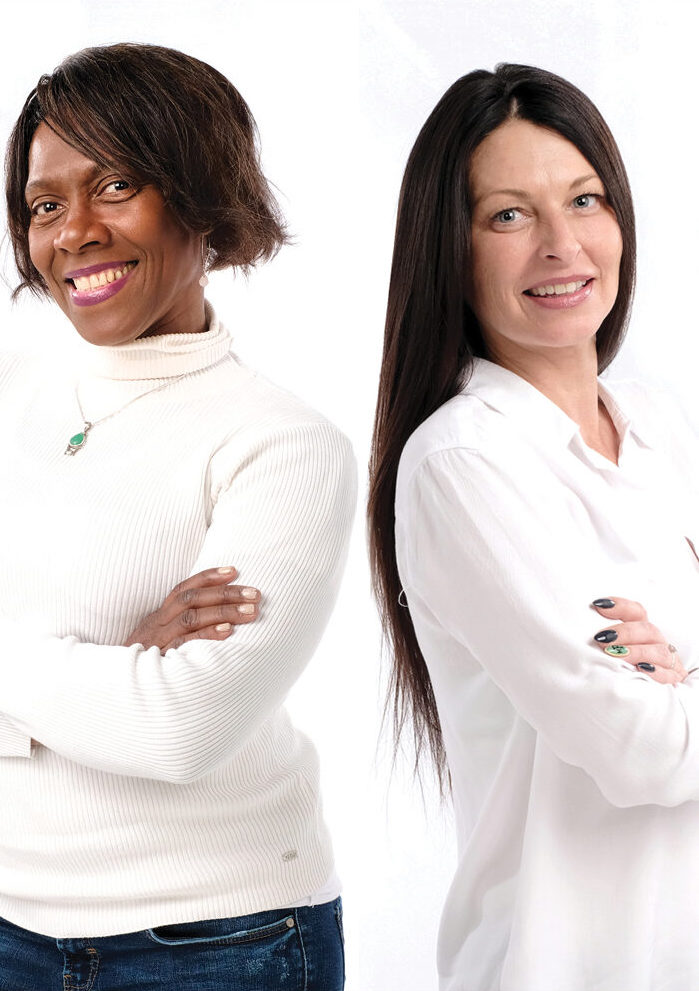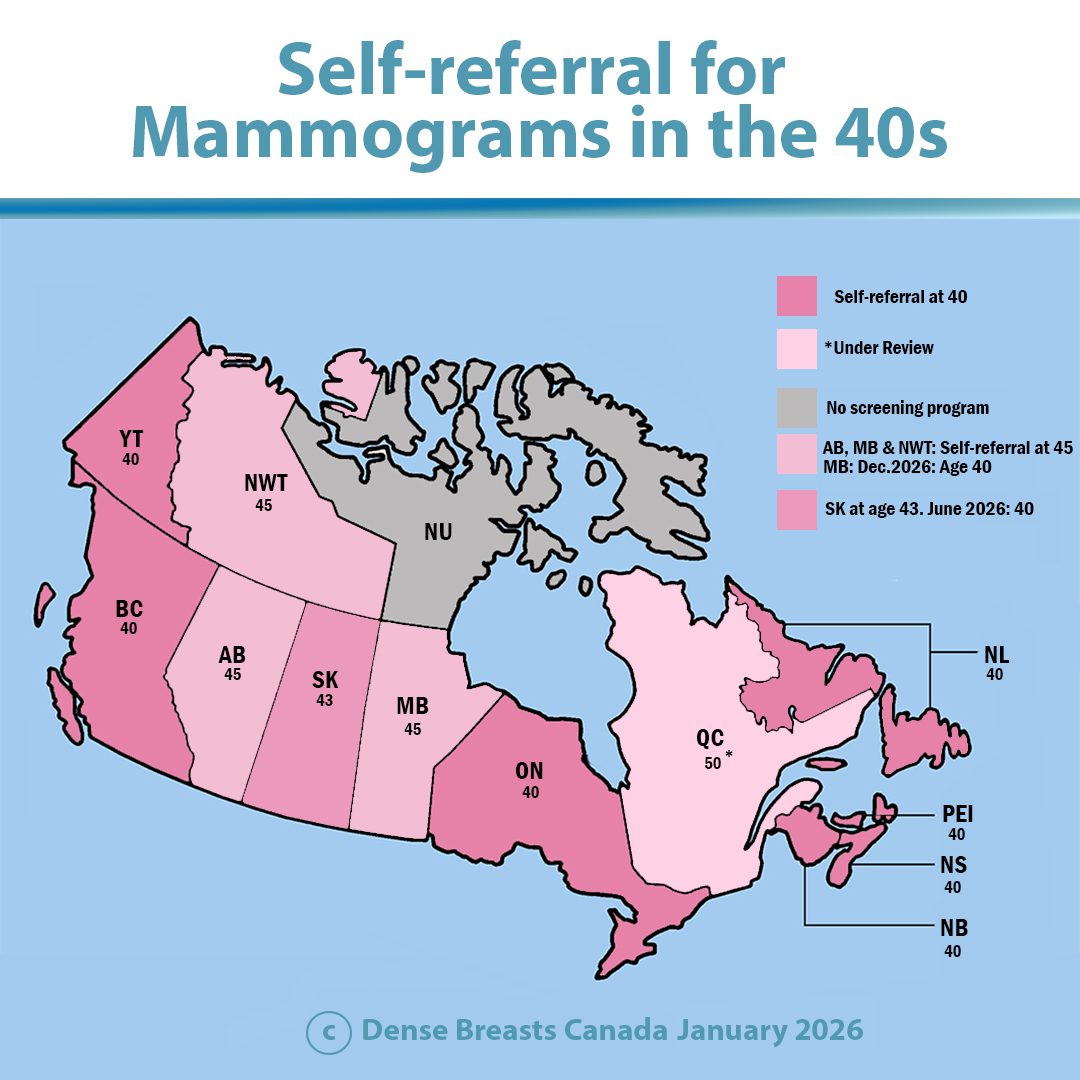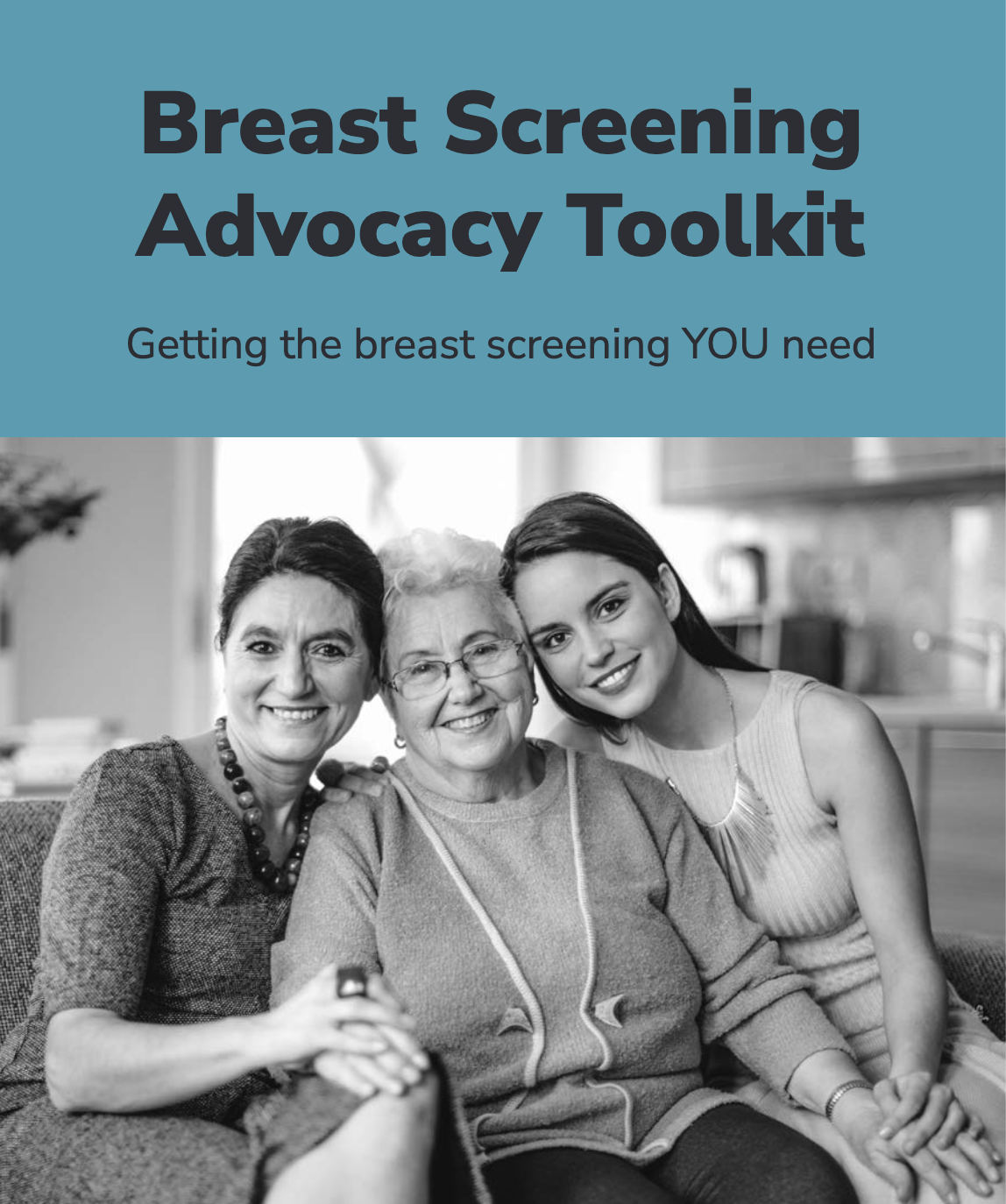You are your own best advocate.
Get the screening you need.
Do you have dense breasts?
Your healthcare provider may not be up-to-date on the risks of dense breasts. You are. Here's how to have a conversation with your provider.
You know that women with dense breasts face a higher risk of cancer and that cancer can be missed on mammogram because both dense tissue and cancer appear white. You know that a mammogram is not enough for you. Additional screening with ultrasound or MRI can find cancers missed on mammogram. You will need a requisition for additional screening and you will have to advocate for yourself to get that requisition. In Ontario, referrals to hospitals may be rejected, but if you get the physical requisition in your hand, you can call a community clinic (neighbourhood imaging clinic) to book a screening ultrasound on your own.
In some provinces, (Manitoba, Nova Scotia) supplemental screening is not accessible. However, that does not mean you should not ask in MB or NS- we must continue asking.
We outline in detail what to discuss with your doctor on Get Informed under the section “What If I Have Dense Breasts?” and there are conversation tips can be found in our Advocacy ToolKit.
Are you in your 40s?
Are you in your 20s or 30s?
Conversation tips for a discussion with your healthcare provider.

Spread the word.
Tell other women about dense breasts. Tell other women about the importance of mammograms.
Ask friends, family and colleagues if they are looking after their breast health. Do they know their density? If not, tell them why it’s important to know it. Have they scheduled their routine mammogram? Remind them of the importance of early detection. Each one tell one.
Do you know women in their 40s? Please encourage them to start mammograms. Anyone in Canada can have a mammogram in their 40s. In 7 provinces, self-referral at 40 is available (BC NL NS PEI NB YT ON). Cancer in the 40s can be more aggressive. Details on the importance of starting mammograms at 40 on our our FAQ page.
Do you know women 74+, please encourage them to continue screening. In 6 provinces, women can self-refer past 74. Read more at mybreastscreening.ca
Share your story on our website.
If your cancer diagnosis was delayed because you have dense breasts, or if you were diagnosed in your 40s, please share your story. We'd also love to hear about cancers being found early! Stories are empowering and impactful for others. Please email us: info@densebreastScanada.ca OR upload your story here.
Join our team.
We are looking for help to raise awareness and advocate for better screening in every province. We are also looking for volunteers with expertise in marketing, communication, government relations and social media.
Follow & Share
Please follow us on Facebook, Twitter and Instagram and share our posts. Visit our second website mybreastscreening.ca
Share with your healthcare provider: A list of studies on the importance of screening at 40. Please ask your healthcare provider to check out breast screening guidelines made by experts responsiblehealthcareguidelines.ca
Demand action.
Advocacy in action.
We have made great progress in Canada on breast density notification coast to coast. In NL, QC, and SK, your density category is online in each woman's health portal. Elsewhere, the category is mailed with the result letter after a screening mammogram. We have also made great progress on screening starting at 40. Seven provinces/territories have self-referral at 40 (BC ON NB NL NS NB YT) and MB and SK have committed to it. Note: AB and NWT begin at 45.
How does your province rate on 7 optimal breast screening practices.
Check out our latest report Comparing breast screening practices across the country.
Check out the results of our survey of 2500 Canadian women in our report: Failing Canadian Women
Letters to politicians.
Please see the footer for the letter for your province and please take a minute to send it in. Please consider sharing the letter with your contacts. The more letters that get sent in, the more impactful. Your Health Minister's address is below.
Advocacy continues to ensure that women in Canada with dense breasts can access supplemental screening and women in all provinces can self-refer for a mammogram starting at age 40.
Draft Version of Canadian Breast Screening Guidelines 2024.
Advocacy is ongoing with regards to the 2024 draft breast screening guidelines. All federal parties are in agreement that the guidelines are dangerous and must be revised. We have successfully advocated that the body that made the guidelines- the Canadian Task Force on Preventive Health Care be reformed and we look foreward tp seeing the draft guidelines re-examined and revised.

Advocacy Milestones and Impactful Changes
Since its founding in 2016, Dense Breasts Canada (DBC) has emerged as a leading force in advocating for improved breast cancer screening policies and public awareness across the country. Through tireless efforts, DBC has made significant strides in achieving policy changes that prioritize early detection and equitable access to screening for all women.
You can read about the latest policy changes below as well as in our report:
Advancing Breast Cancer Screening in Canada: A Summary of Policy Wins and Progress
Breast Density Notification
Screening Age Lowered to 40
When DBC began, only four provinces/ territories (BC, NS, PEI, YT) were offering self-referral mammograms for women starting at age 40. DBC successfully advocated alongside medical professionals and patient advocates and in 2024/25, three additional jurisdictions (ON, NB, NL) lowered the screening age from 50 to 40. In Jan 2026, SK lowered the age to 43 and MB lowered the age to 45. MB and SK will lower the age to 40 later in 2026. Quebec is expected to lower the age to 45. AB and NWT are expected to lower the age to 40.
Supplemental Screening for Women with Dense Breasts
Before DBC launched, supplemental screening for women with dense breasts was not widely available. Through DBC’s advocacy, women with dense breasts in BC, AB, NWT, SK, and ON now have access to additional screening.
Challenging the Canadian Task Force on Preventive Health Care Guidelines
DBC has led efforts to expose flaws in how the Canadian Task Force on Preventive Health Care develops national guidelines. Through testimony to parliamentary committees and meetings with PHAC, DBC raised key concerns about governance, oversight, and the need for up-to-date evidence and expert input in Canada’s breast screening guidelines. This advocacy resulted in a review of the guideline development process and a pause in the Task Force’s work. Modernization of the Task Force is underway and a new Task Force is expected April 2026.
Raising Awareness
In addition to policy changes, DBC has made significant strides in raising public awareness about the importance of breast cancer screening. Through public education campaigns, social media outreach, and collaborations with medical experts, DBC has empowered women with the knowledge they need to take control of their health.
Public Support and Grassroots Mobilization
DBC has galvanized public support for better screening policies. Through its messaging and community engagement, DBC has amplified the voices of women across Canada who are advocating for better breast screening.

